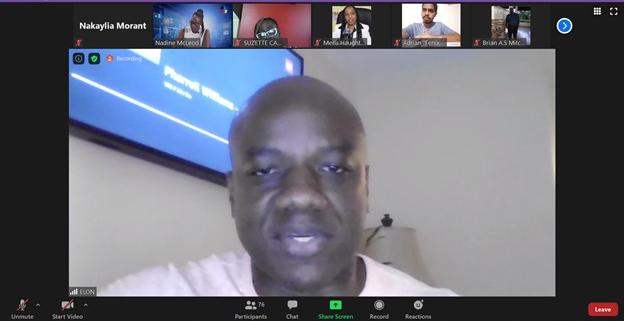Students of the Bachelor of Arts in Communication Arts and Technology programme of the University of Technology, Jamaica (UTech Jamaica) were exposed to public relations best practices during a virtual workshop entitled Crisis Communication, held on September 15, 2020. Hosted by Nadine McLeod, UTech, Jamaica lecturer and media practitioner, the webinar focused on: responding to negative publicity, public relations during a pandemic and executing press releases.
Communication during Crises
Suzette Campbell, Corporate Communications manager at the Jamaica Business Development Corporation (JBDC), stated that public relations during a crisis is where the rubber meets the road, and gives the opportunity to show how on point you are. She expounded that while planning for a crisis, there are times when you have to lead to avoid a potential crisis, while at other times a crisis is not as big as it seems, and a response may add fuel to the fire. Campbell also emphasized that when speaking to the media during a crisis, never say “no comment” as it sends them wild and creates controversy.
The message that “you must plan for a crisis” was reiterated by Head of Communications at the Tax Administration of Jamaica, Meris Haughton. She said, “I had releases written before even having a COVID case”. When asked how COVID forced a change of procedures at the Tax office, Haughton noted that a part of PR is to change public attitudes, habits and providing awareness.
Elon Parkinson, Head of Public Relations at Digicel Jamaica speaks during the ‘Crisis Communication’ webinar on September 15, 2020
Elon Parkinson, Head of Public Relations at Digicel stated that “out of every crisis comes an opportunity”, giving the example of Digicel’s long awaited conversations on a national broadband program, which are now being held as the nation is depending on internet service. Haughton used a similar example, referring to the addressing of the digital divide in banking which was highlighted during the pandemic.
Parkinson explained that in crisis management the shareholder value of a business should be cause for concern, “Having a sole shareholder versus the members of John Public being shareholders will dictate your response to the crisis”. Citing the Tylenol murders of 1982, the shareholders decided to stick it out because the company had a lot of equity, having created a notable drug,
According to Campbell, JBDC was able to push the envelope and adapt easily based on the publics that they service. She noted that her organization has rolled out a number of virtual events and conferences such as the “JBDC in Concert” and the “Virtual Biz zone” which targeted entrepreneurs and sought to provide them with entertainment or assistance during these times.
Best Practices for Communication
Campbell went on to praise the government’s quick adaptation to the use of social media and the web to provide information to the public in the midst of the COVID-19 pandemic. Citing examples like a photograph of the Minister of Health and Wellness, Dr. Christopher Tufton acquiring equipment for hospitals highlighted the use of social media to maintain an element of sociability. She also commended the frequent press conferences being broadcasted not only on television but also on social media.
All the speakers agreed that a good relationship with media colleagues benefits your brand, as they may be less keen to run with a story, depending on their relationship with you. Haughton emphasized the necessity of building and maintaining relationships within the media industry. Parkinson’s personal preference is to go to the media houses and meet with journalists.
During a question and answer segment, students posed questions to the professionals. Among these was a query regarding the need for 5 to 10 years of experience, which many companies require when hiring a PR Officer. Elon Parkinson spoke of how experience can be defined, going on to state that the webinar is a source of experience.
A major takeaway from the workshop was that being responsive and setting standards is how you build and maintain relationships in this industry. Campbell also stressed to students that PR is not for the faint of heart and not to be fooled by what is seen in the media. She stated that “many people see the pretty part of PR and think it is easy….it is a very strategic arm”.
Reported by Breanna Lewin

